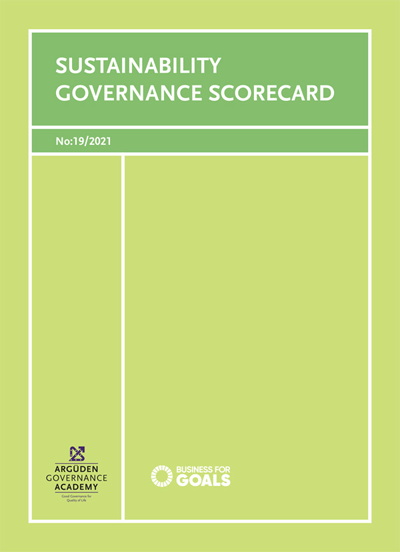Preface
Investors, board members, executives, public officials, and the public in general are becoming more sensitive to sustainability issues. Many companies are embracing new initiatives and incorporating sustainability into their strategies. Sustainability leaders are realizing that they need to consider the impact of all their decisions and actions on all stakeholders, current and future. Furthermore, by integrating the externalities in decision making, they are not only improving the resilience of their companies to environmental and social risks, but also able to identify opportunities for innovation and value creation.
To move towards a more sustainable future, we need to have organizations that assume their sustainability responsibilities and take action.
Companies that take sustainability seriously, also improve the sustainability of their success. Sustainability of the success of a corporation can only be achieved by adopting a long-term perspective, considering the interests of all stakeholders in decision making, and continuous ability to invest and innovate. Sustainable success can be achieved through integrated thinking (for innovation and sustainability), effective implementation (for value creation and value capture), and proper communication of value creation and value capture models (value reporting for gaining the trust of the stakeholders to gain preferential access to capitals).
ESG has become an important acronym for sustainability by utilizing the first letters of environmental, social, and governance. However, ESG does not do justice to the concept of sustainability for at least two reasons:
- Analysis and management of environmental and social impacts should not be considered as adjunct to financial/economic impact but rather as an integral consideration in all decision-making.
- Governance is not a separate domain, but rather a framework on how guidance and oversight is provided over all decisions and actions that have economic, environmental, and social impacts.
Decisions by the companies impact not only their own financial outcomes, but also have significant influence on the economic, environmental, and social outcomes for all their stakeholders including their value chain, communities, and quality of life for all and especially for future generations. Sustainable future requires decision-making processes that incorporate all potential impacts, incorporating the positive and negative externalities into our decision-making processes, and avoiding short-sightedness and selfishness. Gaining the trust of the stakeholders requires transparent disclosures on all these dimensions in an integrated manner.
Therefore, labeling G for governance as one of the concepts along with Environment and Social (ESG), does not do justice to how we should provide governance to all our decision making and their implications for Economic (financial outcomes for the company as well as economic development for the whole value chain), Environmental, as well as Social domains.
Governance is providing guidance and oversight to management to ensure sustainability of the organization by gaining the trust of all stakeholders. Therefore, good governance is about creating a climate in which a culture for building value and trust nourishes. Good governance needs to ensure that the organization has the right people, processes, information, and values to create value and trust. Happiness and success come from aligning our thoughts, words, and deeds. Therefore, we need to change our terminology of ESG to G(EES) to instill a proper understanding of Good Governance that needs to encompass evaluation of the impacts of management decisions on the Economic, Environmental, and Social domains.
We need to understand that good governance is the key to the sustainability of sustainability efforts.
Sustainability Governance Scorecard© relies on the broader perspective of sustainability –sustainability of sustainability efforts– which is the key for good governance. In SGS 2021, we emphasize that the necessary ingredient of sustainability is governance. Some parts of our report mention sustainability subtopics as E,S,G due to the reporting mechanisms of the companies as this research relies on their public disclosures.
Argüden Governance Academy has been conducting this impact-research for the last three years to review the financial and sustainability disclosures of about 200 Global Sustainability Leaders from 7 countries through a governance lens. While the sustainability performance of various companies is difficult to compare, as such performance is context specific, their approach to governance of sustainability efforts provides important insights for everyone.
We hope that the Sustainability Governance Scorecard© will help improve the state of the world by speeding up peer learning from the Global Sustainability Leaders analyzed in this research.



